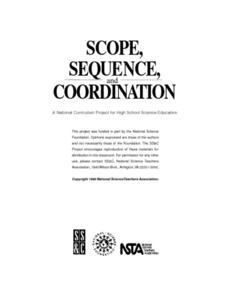Science 4 Inquiry
Musical Vibes with Palm Pipes
Ancient people used musical pipes as early as the third millennium BCE. Young scientists explore the workings of musical pipes to better understand the relationship with frequency, length of pipe, and sound waves. They determine the...
Discovery Education
Sonar & Echolocation
A well-designed, comprehensive, and attractive slide show supports direct instruction on how sonar and echolocation work. Contained within the slides are links to interactive websites and instructions for using apps on a mobile device to...
Scholastic
Study Jams! Sound
Listen in as Mia and Sam expound on sound. It is caused by vibrations and travels in waves. It has the qualities of pitch, frequency, and volume. This hip animation displays a graph to depict the frequency and amplitude of sound waves....
Curated OER
Listening Devices
Students design and construct a listening device that will allow them to listen to the sound generated by specific object inside a box.
Curated OER
Typical Conceptual Questions for Physics I - Waves, Electricity, and Magnetism
This wave and electromagnetism assignment is so thorough, it could be used as a unit exam. The first section of it covers wave concepts. The next section addresses static electricity. There is a section that deals with electric circuits....
Curated OER
Hooke's Law, Vibrations, Mechanical Waves, and Sound
Dangle a spring to experiment with vibration and discover if period is dependent on amplitude. Strum a guitar and adjust the strings to compare displacement and sound. Use a Slinky® and guitar strings on a ring stand to uncover the...
Curated OER
Playing With Science
Young scientists investigate the scientific concepts and principles that help make common toys such as hula hoops, yo-yos, slinkies, and silly putty work. As a class, they read "Backyard Rocket Science, Served Wet" to get a look behind...
Curated OER
Sounds Like Great Science!
A phenomenal lesson on sound is here for your third graders! In it, learners engage in hands-on activities, watch video, take part in Internet activities, and complete tasks in cooperative groups in order to explore the world of sound...
Curated OER
Seeing and Feeling Sound Vibrations
Groups rotate through a series of stations and work with a partner to observe sound waves. Children describe sound in terms of pitch, volume, and frequency. To apply their new knowledge, the class considers how these observations can...
California Department of Education
Waves and Music
Strike the right chord with a musical activity! Instructors provide a lecture on the mechanics of a pan flute. Pupils build their own pan flutes by using straws and calculating the lengths to create a scale. After cutting the straws to...
California Department of Education
Slap Tubes, Flutes, and Xylophones: The Physics of Pipe-Based Instruments
It's the encore to a wave unit. Individuals build either a slap tube, flute, or xylophone as a culminating activity for a physics unit on waves. Scholars calculate the lengths of pipes needed to produce the specific notes for their...
California Department of Education
Sound Waves
Resonate with the class. By watching a couple of videos, pupils realize that sound waves require a medium to travel and can break glass. They then listen to a lecture on resonance and work through a lab to calculate the speed of sound...
California Department of Education
What Is a "Wave"?
Take a stretch, but don't wave goodbye. An interesting resource provides everything needed to present an introductory lesson plan on waves. Teachers present a PowerPoint defining the types of waves and their characteristics. Pupils use a...
NASA
Feel the Noise
Can you hear it now? Young scientists experiment with sound waves using metal objects and string. They strike metal objects while they hold them and as the objects hang from a string to compare the sound. They discover that sound travels...
PBS
Volume and Amplitude | UNC-TV Science
Future physicists pump up the volume while discovering the world of sound waves. Group members learn about the qualities of sound waves, the relationship between energy and sound volume, and the definition of amplitude while viewing an...
Las Cumbres Observatory
Create a Hubble Tuning Fork Diagram
Add a little color to the universe. Learners recreate images of the galaxies using real data and Photoshop software. They display their images in a Hubble tuning fork diagram by classifying and categorizing their shapes.
University of Waikato
Make and Use a Hydrophone
Using a home-built hydrophone, pupils investigate how things sound in water. Learners listen to sounds created in air and then compare that to the same sound picked up by the hydrophone. Individuals compare the loudness and the pitch of...
Acoustical Society of America
Wave Basics
Catch the fast wave. Using a computer simulation, pupils experiment with amplitude, frequency, damping, and tension of a string to determine which affects the speed of the wave. Learners record the observations to determine their...
Acoustical Society of America
Doppler Effect
Here comes the sound. After watching a couple videos demonstrating and explaining the Doppler Effect, learners develop their own understanding of the phenomenon. Scholars draw a sound wave and observe how the perception of the wave...
Science Friday
Make a Speaker
Make science come in loud and clear. Pupils learn about how a speaker works by building one. The scholars first learn about electromagnetic fields by building an electromagnet. Using that knowledge, they build a crude speaker using a...
Utah Education Network (UEN)
Utah Open Textbook: Physics
Textbooks come in all shapes, sizes, and media these days. An electronic textbook resource offers Physics materials for an entire course. The text offers an explanation of physics topics as well as examples of calculations and reading...
Purdue University
Design of Music Instruments for a Rock Band
Can you create a rock band? Scholars learn about the creation and transmission of sound in a hands-on STEM activity. First, they explore the transmission of sound using a tuning fork. Then, they must solve the problem of missing...
Purdue University
Sound Absorption Wall
What types of materials absorb sound? Learners explore sound waves, the decibel scale, and how different materials affect sound. Then, they use their knowledge of sound meters to complete a STEM engineering design task to build...
PBS
Math with Jake: Frequencies and Pitch
Be an octave above the rest. A musician explains how to write music in different time signatures. An interesting resource continues to demonstrate ratios using the pitch of musical notes and hertz. Pupils use a pitch table and determine...

























